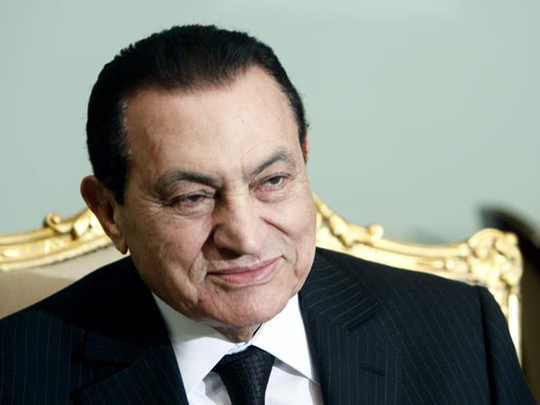
Western journalists covering the buildup to next year's expected Egyptian presidential election question are getting carried away. They seem more interested in producing a good story than on reporting what really lies behind the tug-of-war over presidential office. Reports on controversial photos of Mohammad Al Baradei's family appearing on Facebook — aimed at tarnishing his image among conservative Muslims — and posters of intelligence chief Omar Sulaiman being plastered on the walls of Cairo are popular in the West. Information for these stories is sourced either from the streets of Cairo, the views of a small elite dabbling in politics, observations of western diplomats based in Egypt, or the Egyptian opposition. None of this scratches the surface of Egyptian life.
Journalists tend to forget that Egypt is a country of 81.5 million, whose majority cares very little about who succeeds their ageing president, so long as this successor — whether it is Al Baradei, Sulaiman or Jamal Mubarak, son of current President Hosni Mubarak — ushers in economic reforms. It's better jobs, higher wages, better hospitals, more social security and improved education that sells on the street in Egypt and not political pluralism, press freedom or grand utopian ideas about democratic freedom, which are spoken of day and night by the opposition. This is something that the opposition has simply failed to digest and which Mubarak — in his capacity as a heavyweight of the ruling National Democratic Party (NDP) — has firmly understood, and seemingly mastered.
The 46-year-old Mubarak, who is seemingly on everybody's radar these days, understands this reality very well and is speaking a language that ordinary Egyptians want to hear. He reminds his audience, almost every time he speaks, that Egyptian exports have doubled over the past four years, and that the government has created around 800,000 jobs per year. He hints that this would continue if he were to become president. Foreign investment is indeed pouring in and Egypt's economy is growing at approximately 7.5 per cent per year. However, more than 40 per cent of the population still lives on $2 a day, social services are lacking in vast parts of the country and food prices are climbing. Corruption is widespread, electricity blackouts happen daily and nepotism is at its zenith. According to official figures, unemployment stands at nine per cent. In reality, however, the number is probably much higher.
This gives Egyptians all the more reason to vote for Mubarak next September, given that he has the power, the will and the state apparatus at his service to allow him to make things happen.
None of the candidates involved in the presidential race seem interested in subtlety. They say what is on their mind, bluntly, with little regard for political correctness. Al Baradei, who had previously chosen his words very carefully when speaking about the government, snapped last week when photos of his daughter in a swimsuit were published on Facebook. "Such a campaign is the usual and only response of the regime towards whoever demands democracy, which is the only way for freedom and economic reform and social justice," he said. The government, for its part, is also clearly furious about campaign posters that were put up by unknown people in Cairo this week, featuring Sulaiman, 74. No sooner had the posters appeared than they were removed by the authorities, with little regard for how undemocratic that might appear to the outside world.
Campaign trail
Posters of Mubarak also appeared in the Egyptian capital last month, showing the investment banker-turned politician in a western suit, bearing the slogan "Champion of the people!" Meanwhile, a "Yes to Jamal" petition is circulating throughout Cairo, clearly with the implicit backing of the NDP.
Mubarak himself has been outspoken about his future plans, shedding the mask that he had worn for years. When asked in an NDP forum this summer whether he was running for president next September, he said, "I have not nominated myself". He did not say "no", nor did he repeat earlier rhetoric about respecting the Constitution or not wanting to discuss such matters so long as the president was alive and well.
Despite all the fuss in the media, the truth is that the Constitution clearly states how a president will be elected within 60 days of the incumbent having to step down. Each candidate must have occupied a top leadership position in a political party for a lengthy period of time, the political party itself must have existed for more than five years and needs to control a minimum of three per cent of the People's Assembly and five per cent of the Shura Council. An independent candidate must receive the endorsement of 250 elected members from Egypt's representative bodies, from which a minimum of 65 endorsements must be obtained from the People's Assembly, 25 endorsements from the Shura Council and 10 Local Council endorsements from 14 governorates.
These requirements are intended to ensure balanced geographical representation. As a result, only Jamal and his father Hosni — should he decide to run for re-election at the age of 83 — are serious candidates.
Sami Moubayed is editor-in-chief of Forward Magazine in Syria.









